#muslim culture
Text
Adventures in Librarian-ing
Today one of the Grade 1s came up to me after storytime looking like she was about to explode from excitement.
"Miss Flecha, guess what! This Friday I get to celebrate Eid!"
"Ah, then I have the perfect book for you! It's brand new too, I just finished putting the stickers on it today!"
And I pulled out a copy of The Most Exciting Eid by Zeba Talkhani.
She was SO excited about the book, y'all. Even if she technically couldn't take out a book (if she had forgotten her book) I'd still have let her take it. She kept flipping through it with a look that was a mix of awe with the :D face.

#eid mubarak#kidlit#children's books#children's literature#islam#picture books#school librarian#school libraries#librarians#libraries#library#librarianship#children's librarians#adventures in librarian ing#representation matters#character of color#muslim character#muslim culture
74 notes
·
View notes
Text
Quick question for any of my Muslim or Arab followers or just folks who see this post, is it considered appropriate for Muslim/Arab women to have their arms bare in public? I’m working on designing a character with Muslim descent and I wanna make sure it’s not offensive in any way.
Just for context this is the design in question

12 notes
·
View notes
Text

Motivation indeed 🤣
S
11 notes
·
View notes
Text
Creating a Welcoming Home During Ramadan: 10 Tips for a Peaceful Atmosphere
Make your home a beautiful and peaceful sanctuary during Ramadan with these 10 tips. From lanterns and flowers to prayer spaces and calming music, create a welcoming environment for your family and guests.
10 ways to make your home a welcoming space during Ramadan
Ramadan is a holy month for Muslims around the world, a time of fasting, prayer, and reflection. During this period, many people…
View On WordPress
#calming music#dates and tea#decluttering#family#fast#flowers#home decor#Islamic art#lanterns#Muslim culture#peaceful atmosphere#prayer space#Ramadan#reflection#Spirituality
2 notes
·
View notes
Text
मुस्लिम लड़कियों की पहचान
मुस्लिम लड़कियों की पहचान: वैसे तो आज के जमाने में मुस्लिम लड़कियों को पहचानना बेहद आसान है. आप मुस्लिम महिलाओं को उनके हिजाब या घूंघट, धागा, नाम, दुआ या प्रार्थना, अल्लाह में विश्वास, माँ पर सिंदूर या बिंदी की कमी और अन्य विशेषताओं से पहचान सकते हैं। तो आइए इस विषय की शुरुआत मुस्लिम लड़कियों की पहचान करना सीखकर करते हैं।
1 note
·
View note
Photo



(via Eid Celebration Muslim Man Hugging Fowers Graphic T-Shirt by fatydesignspace)
#findyourthing#redbubble#eid mubarak#muslim community#muslim culture#love family#flower#celebration#ramadhan#american muslim
1 note
·
View note
Text
Another bewildering assertion I've seen floating around is that the United States of America deliberately destabilises West Asia and North Africa, murders millions of civilians, destroys towns and cities, arms militias &c. because of Islamophobia. I assure you that this is not true and that no one who is serious about understanding geopolitics or Islamophobia has this analysis. Islamophobia may have early modern or pre-modern instantiations, but in its current context it is very much a result of and a rhetorical and social justification for the geopolitical, economic, resource-driven exigencies of imperial capitalism. You're looking at a cart and insisting that it is pulling a horse around
#saw one post saying that the US had such a 'problem with' Muslims that it killed people 'for oil'#not seeming to realise the contradiction in the fact that this line of reasoning explains the same actions with two different motives#as if they had heard the (very present in pop culture) explanation that it's for oil without fully internalising what that meant#Islamophobia#no fly list
5K notes
·
View notes
Text
im sure its been said already but as the election draws near more and more liberals will come out of the woodwork to shame people with a conscience to give away their vote to the democrats for free. i'm already seeing posts saying "why aren't people more concerned about a trump presidency?" you want to know why? it's because people already know he's bad. everyone already knows what he is and what he's done and what he'll do. there's nothing to discuss. he's a racist despotic worm of a man. there's nothing else to say.
biden is currently president. the genocide is happening under his watch. he's the one funding isra*l and arming them; he's sidestepped congress more than once to give them weapons. by oct. 27, the biden administration already knew that "Israel was regularly bombing buildings without solid intelligence that they were legitimate military targets." the state department/biden have engaged in atrocity propaganda, cast doubt on the legitimacy of the death toll recorded by the gaza health ministry, and so on. the united states is currently in the process of trying to pin the "war in gaza" on netanyahu (see sen. schumer's speech) after months of backing blatant genocide as a means to act as if they're "doing something" about the genocide (Instead of, say, threatening to cut off all aid to israel with the condition that all hostilities in gaza, the west bank, and occupied jerusalem are halted immediately and permanently, allowing palestinians freedom to travel, allowing aid into gaza, etc etc etc.)
the long and short of it is that liberals view their own lives as being worth more than palestinians'. that's it. they'll vote for another 4 years of the guy ushering in genocide and supporting apartheid + settler colonialism because he isn't outright attacking them (despite various laws and rulings happening both at the supreme court level and at the local level all over the country that will endanger people). they'll settle for the illusion of safety and security and shame anyone with a conscience and accuse them of "supporting the republicans" when in an actual democracy you would be able to use your vote as leverage to extract concessions from those who want to be elected. that's how it's supposed to fucking work.
democrats are not owed people's vote. if biden loses, it will be biden's fault; it will be his campaign's fault; it will be the democrats' fault. trump is bad; the republicans are bad. we already know this. this is not an endorsement of either. but if democrats are too cowardly and feckless and servile to the motivations of the american empire and never do anything for their constituents then why the fuck should anyone vote for them. you want to get mad at someone, why don't you do something useful and stop worrying about team-sports with a purely selfish basis and start hounding the people in power who are supposed to serve you, the voter.
#i think i already said this and frankly idc#uspol#📁.zip#to me personally it's abhorrent and vile to tell palestinians 'biden is facilitating the murder of your people culture and history but you#still have to vote for him!!1' like how is that not unbelievably callous and ghoulish#frankly speaking. a lot of this 'you should be concerned about trump' is going to turn into#blaming palestinians and arabs and muslims and anyone remotely with a conscience for biden's loss#instead of doing something productive like pushing for people in power to do something they'll nitpick and belittle#and tell palestinians + arabs and muslims + everyone who understands that genocide is bad that they SHOULD#settle for a decrepit genocidal monstrous freak who is CURRENTLY facilitating genocide because#it makes THEM feel better and they aren't personally threatened (yet) by the guy currently in power#any and all 'you're not taking trump seriously' comments should be met with extreme skepticism#because i promise i PROMISE that the vast majority of people unhappy with biden are not going to turn around and vote for trump#and if they do? well guess what THAT'S BIDEN'S FAULT! nevermind the vote uncommitted campaign that was very successful and#will be replicated in the near future. but liberals only care about asthetics and superficial and not#about real material change which is why they'll dress up their callousness and racism in a 'you hate gay people if you dont vote for biden'#like this country is already going to shit we are rapidly descending into fascism and i dont see biden doing anything to even remotely#challenge it do you???? once agian. NOT an endorsement of the republican party but my GOD when the 'lesser evil'#is DOING the evil or normalizing the evil then you cannot settle for 'the lesser'! end of story.
385 notes
·
View notes
Text
to all my fellow trans muslims on trans day of visibility: i see you and i hear you. you are not and never will be alone in this
if youre not trans but you know someone who is, take the time to tell them that they are loved today, yea ?
#theres a lot i could say but i dont know to make the words sounds meaningful#we exist we are alive we are here we are breathing and we are together in that#no matter what we are together in that#not queer muslim culture#trans day of visibility#tdov#queer muslim#queer#muslim#positivity
348 notes
·
View notes
Text
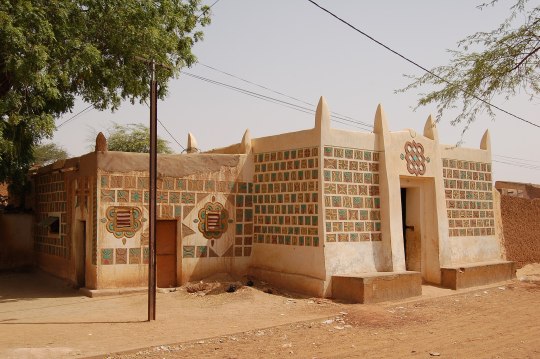
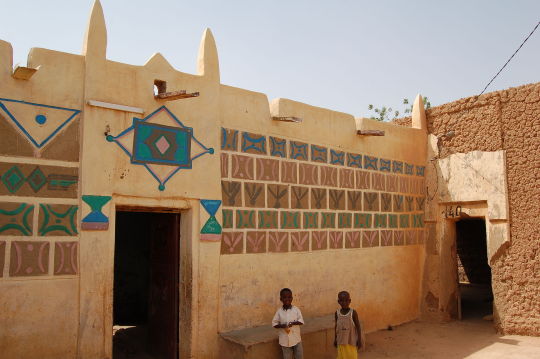
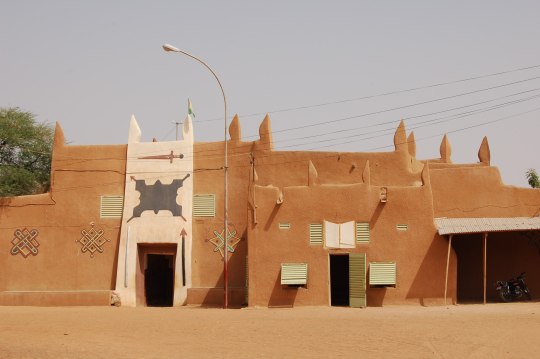
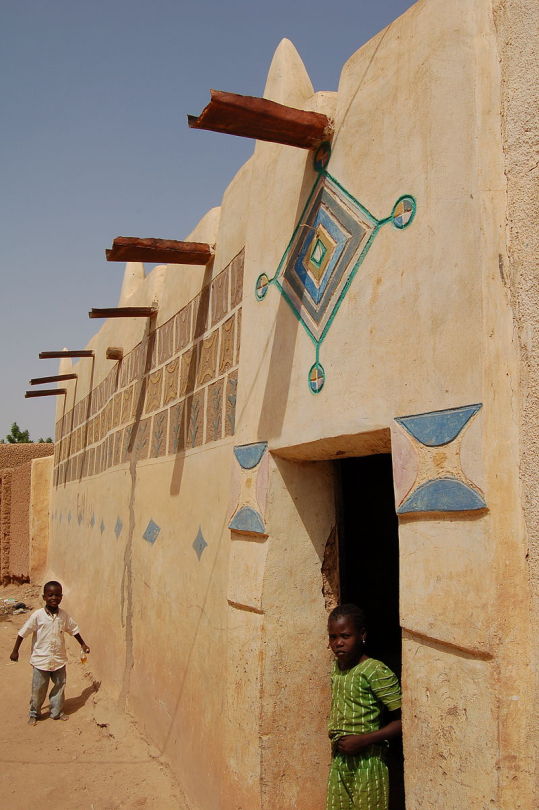
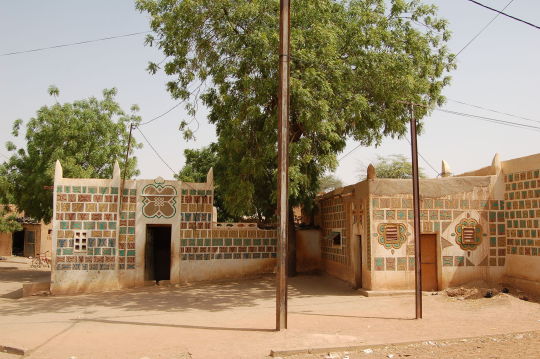
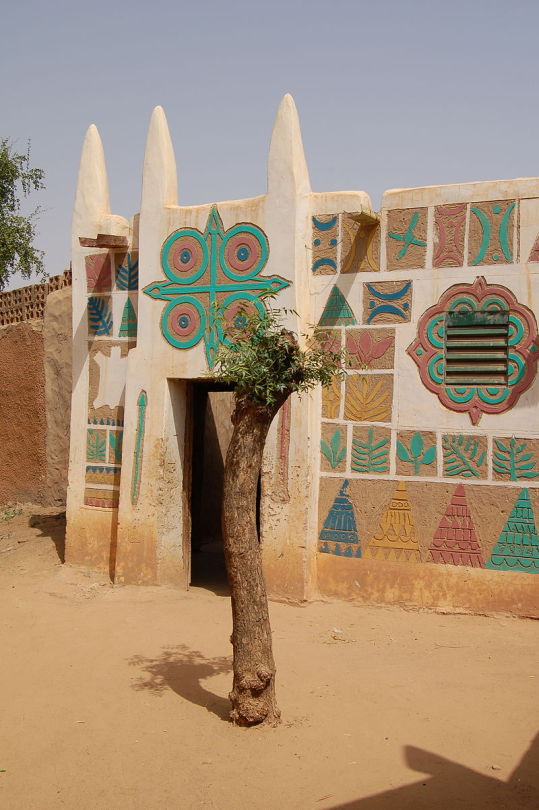
some of the architecture of zinder, niger. zinder rose from a small hausa village into an important center of trans-saharan trade during the 18th century, culmunating in it becoming the capital of the sultanate of damagaram in 1736.
#niger#hausa#architecture#my posts#in case you didn't know: hausa is a part of the afroasiatic language family (same family semitic langs are in)#there's a lot of theories about how exactly afroasiatic speakers spread & there isn't a consistent cultural/migration pattern#like w/ indo-euro languages#but hasua is probably to arabic/hebrew/syriac what english is to bengali or assamese (except even less similar)#i can pick out some hausa words myself ('sama' is 'heaven') but tbh im not sure how many are loadwords from arabic (since they use#'dunya' for 'world' for example). most hausa are muslim so itd make sense if they took some arabic words
590 notes
·
View notes
Text
the way this website balks at the term "culturally christian" is so funny to me like. oh shit you mean the religion our government and culture is structured around might impact you even if you're atheist and ESPECIALLY if you're ex-christian? noooo it's the people using it to describe a phenomenon of western culture that are wrong
#I think sometimes it's a genuine misunderstanding of the term#but others it's just a knee-jerk reaction against being associated w christianity#like babe just bc you left the church does not mean the church left you!#esp if you continue to parrot very christian beliefs!#and even people born and raised atheist are dealing w morals imbedded in western society by christianity#it's also not exclusive to christianity! culturally muslim people exist in other countries & cultural hinduism etc...#it's about what religion is The Major Religion backing the moral decisions of a society#regardless of your personal belief
368 notes
·
View notes
Text
Characters reconnecting with their ancestral cultures in an interplanetary setting
@pixiedustandpetrichor asked:
Hi! I am writing a novel with three main female characters in an interplanetary setting. They grow up as orphans in an Irish-coded country and as children are mostly exposed to solely that culture, but they leave after becoming adults.
Character A is Tuareg-coded, B Mongolian-coded, and C is Germanic-coded. It isn’t central to the story, but I would like them to get in touch with/learn more about their ancestral cultures, especially in terms of religion. A does this by actually visiting the planet her parents came from, but B and C do not.
What can I do to depict their relationships with said cultures and their journey to reconnect with them? Would it be realistic for each of them to have different mixed feelings about participating in these cultures and for them to retain some sense of belonging to the culture they grew up in as well? Thank you for your time.
Hello, asker! WWC doesn’t have Tuareg or Mongol mods at the moment, so we're not able to speak to the specifics of cultural and religious reconnection for these particular groups. Still, I want to take this opportunity to provide some general context and elements to consider when writing Tuareg-coded characters, or other characters from groups that have experienced colonization in the real world. My fellow mods will then share thoughts about cultural reconnection in general and with respect to Germanic heritage in particular.
Drawing inspiration from groups that have experienced colonization
As you’re probably aware, the Tuareg are an ethnic group indigenous to North Africa. As with many indigenous groups, they have experienced colonization multiple times over the course of their history. Colonization often leads to the loss or erasure of certain aspects of culture as the colonized people are pressured to conform to the culture of the dominant group. In many cases, it’s near impossible to say what the ancestral culture of a colonized group was prior to colonization.
When coding a fictional culture based on a group that was colonized in the real world, it's important to ask questions about:
Which aspects of culture you're portraying
Where these aspects come from
Whether you're ready to tackle their implications for the world you're building
It’s not necessarily wrong to use elements of coding that draw from cultural aspects influenced by colonization. As I said, it can be very difficult, even impossible, to portray a “pure” culture as it would have been had colonization not occurred–because we simply can’t know what that alternate history would look like, and because so much has been lost or intentionally suppressed that the gaps in our knowledge are too wide to breach. But it’s important to be aware of where these cultural elements are coming from.
Where is your coding coming from and what are the implications?
For example, while the Tuareg today are majoritarily Muslim, this was not the case prior to the Arab conquest of North Africa. Some elements of Tuareg culture today, such as tea ceremonies, are derived from the influence of Arab and Muslim culture and likely did not exist prior to the 20th century. As you’re developing the culture of the Tuareg-coded group in your fictional setting, you have to decide whether to include these elements. There is no right answer–it will depend on what you’re trying to do and why.
Is your setting in our far future, in which case we can assume your Tuareg-coded group is distantly related to today’s Tuareg?
In that case, they will probably have kept many cultural aspects their ancestors acquired through their interactions with other cultures around them–including cultural groups that colonized them. They may–let’s build hopeful worlds!–have reclaimed aspects of their ancestral culture they’d been forced to abandon due to colonization. They may also have acquired new aspects of culture over time. This can be very fun to explore if you have the time and space to do so.
I would recommend speaking with Tuareg people to get a better grasp of how they see their culture evolving over the next however many centuries or millennia, what they wish to see and what seems realistic to them.
Alternatively, maybe your setting is a secondary world unrelated to ours and you only want to draw inspiration from the real-world Tuareg, not represent them exactly. In that case, you need to decide which period of history you’re drawing from, as Tuareg culture is different today from what it was 50 years ago, and different still from 200 years ago or 1000 years ago. You’ll need to research the historical period you’re choosing in order to figure out what was happening at that time and what the cultural influences were. If it’s pre-colonial, you’ll probably want to avoid including cultural elements influenced by colonization from groups that arrived later on.
Finally, if the time period you’re drawing from is post-colonial:
Are you planning to account for the effects of colonization on Tuareg culture?
Will you have an in-world equivalent for the colonization that occurred in real life?
For example, will the Tuareg-coded characters in your world be from a nomadic culture that was forced to become sedentary over the years and lost much of their traditions due to colonial pressure to conform?
Where did this pressure come from in your world–is it different from what happened in ours? If so, how different? And what are the consequences?
Writing about colonization can be quite the baggage to bring into a fictional setting. I’m not saying it can’t be done, but it will certainly require sensitivity and care in portraying it.
In summary: think it through
I’m not saying all this to discourage you, but to point out some of the considerations at play when drawing inspiration from a real-life culture that has experienced colonization. Similar challenges arise for coding based on any other indigenous group in the world.
My advice to you, then, is to first sit down and decide where and when in history your coding is coming from, and what you’re trying to achieve with it. This will help you figure out:
which elements of contemporary Tuareg culture are pertinent to include
How much your coding will be influenced by the Tuareg’s real-life history
To what extent that will inform the rest of the world you’re creating
This, in turn, may help in deciding how to portray your character’s reconnection journey.
Again, I am not Tuareg and this is by no means meant to be an exhaustive list of considerations for writing Tuareg-coded characters, only a few places to start.
If any Tuareg or Amazigh readers would like to chime in with suggestions of their own, please do. As always, please make sure your comments adhere to the WWC code of conduct.
- Niki
Pulling from diaspora and TRA narratives of cultural reconnection
Marika here: This ask plotline could also pull directly from diaspora and TRA narratives of cultural reconnection. Many diaspora and TRA cultural reconnection stories are, in effect, about navigating the difficult process of resuscitating, or renewing ties to culture using limited resources in environments that often lack necessary cultural infrastructure or scaffolding.
See this question here to the Japanese team for suggestions of how to handle such a storyline in a similar sci-fi setting.
More reading: Japanese-coded girl from future
-Marika
Reconnecting with German heritage
Hi, it’s Shira. I’m not sure whether German-Jewish counts as Germanic for the purposes of your post but since German Jews were more assimilated than other Ashkies, Germanness does feel real and relevant to my life (especially because my father worked there for approximately the last decade of his life.) NOTE: when I see “Germanic” vs German I think of cultures from 1500 years ago, not 100-200 years ago, so I can’t help you there, but I’d be surprised as a reader if a character focused on that for reconnection to the exclusion of the 19th century etc.
People in the United States specifically, reconnecting with German heritage, often lean into Bayerischer/Bavarian kitsch, I’ve noticed. Personally, though, what I find most relevant is:
1. The food (although I’ve come to learn that what I grew up eating was closer to veal/chicken scallopini than actual schnitzel because it was drenched in lemon, but I do like the other foods like the potato salad and sweet and sour red cabbage etc.) Your character could try making one of these “ancestral” foods as a way to reconnect?
2. The classical music, because I’m a second generation professional musician – if character C plays an instrument, leaning into that might be meaningful (Beethoven, Bach, Brahms, Mendelssohn, Clara Schumann and her husband Robert, etc.)
3. The nature, especially specifics that I enjoyed during my time there – personally, I loved the bright pink flowers all over the chestnut trees, but there are a lot of choices especially because of the Alps. If C is an artist maybe they can sketch something Germany-related from old photographs they found on the Space Internet?
I think it is VERY realistic for the characters to remain connected to the culture in which they were raised, by the way, whether or not they have positive feelings about it. Culture isn’t an inherited trait. Sure, if they want to completely walk away, they can, but I bet there are still ways it will creep back in without them realizing it simply because it’s really hard to have universal knowledge of the origins of all our quirks. Plus, not everyone feels alienated from their raised-culture just because they’re genetically something else.
P.S. There is also Oktoberfest, which I don’t really get into but is a thing, and beer, which is another point of German cultural pride.
German gentiles, weigh in – y’all have your own stuff, I know! OH YEAH so for German Christians, Christmas “markets” are a whole thing. That’s worth looking up.
–S
What do you mean by Germanic?
Hello it’s Sci! I had to study German history for my historical fantasy novel set in the late 18th century Holy Roman Empire. I am not sure what is meant by Germanic as that can encompass a variety of things.
Germanic people: from the Classical Period of Roman Empire and early Middle Ages. Similar to Mod Shira, I unfortunately can’t help very much here.
The Germanosphere: regions that spoke German, which includes modern day Germany, Austria/Hungary, Switzerland, Lichtenstein, Belgium, and Luxembourg. I generally define this as the regions captured in the Hapsburg Empire along with Switzerland usually encompassing “Central Europe.”
Modern German national identity (i.e. German): post Napoleon and the Congress of Vienna (> 1815) only including the territory of modern day Germany.*
I ask this because modern German national identity is surprisingly recent since Germany only popped up in 1871 under Otto von Bismarck. Previously, Germany was divided into smaller states and city states as a very decentralized region under the German Confederation and before that, the Holy Roman Empire. Depending on the era, you can see different conflicts and divides. During the early days of the Protestant Reformation started by Martin Luther, the northern and southern German territories generally split along Protestant-Catholic lines. The 18th century saw Austria and Prussia as the foci of global power who warred against each other even though both were part of the Holy Roman Empire.
Other states and city-states like Baden-Wurttemberg or Saxony sometimes had power but it was typically more localized compared to Austria. Post-WW2, you saw the split of Germany into West Germany run under capitalism and East Germany run under communism as a satellite Soviet state leading to more modern cultural divides. Due to heavy decentralization historically, each region had its own character with religious and cultural divides.
Assuming that the Germanic character is not from the classical period or early Middle Ages but not from the 19th century either, you can include your character reconnecting to classical folklore like that of Krampus (if they’re Christian), German literature and music like the works of Johann Wolfgang von Goethe or Mozart, or German philosophy like Immanuel Kant.
*A major wrinkle: German royals and nobility married into other states and nations frequently with Britain and Russia being notable examples. In Britain, the House of Hanover took over after the Stuart House died without clear direct heirs. When Queen Victoria married the German prince Albert, they celebrated Christmas with a tree and brought the German tradition of a Christmas tree to Britain and the British Empire. Only during World War I did the royal family’s house of Hanover name change from House of Saxe-Coburg and Gotha to the more “English-sounding” Windsor. As a result, the German cultural influence may be even more widespread than we think.
However, without more specific descriptors of what Germanic means in the context of your story, it can be difficult to determine which aspects of German culture your character could reconnect to.
-Mod Sci
#culture#cultural disconnect#cultural reconnect#race coding#ethnic coding#German#Mongol#Tuareg#setting#science fiction#Jewish#Colonialism#History#North Africa#Arab#Muslim#history
337 notes
·
View notes
Text
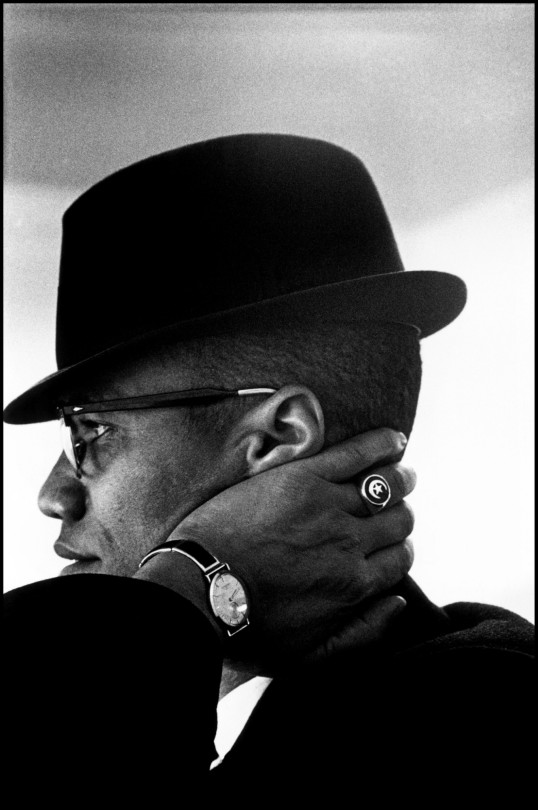
Malcolm X, 1961, Chicago by Eve Arnold.
#1960s#eve arnold#photography#malcolm x#black history#islam#black pride#muslim#civil rights#blm#style#b&w#jazz#hip hop#people#black excellence#culture#60s#fashion#black tumblr#📚
999 notes
·
View notes
Text
X-Men is about civil rights. If you didn’t get that, you didn’t get X-Men.
Black Panther is about civil rights. If you didn’t get that, you didn’t get Black Panther.
Captain America literally fought Nazis. He is the embodiment of fighting the alt-right. If you didn’t get that, you didn’t get Captain America.
The Empire in Star Wars is fascist. The Rebel alliance are Anti-Fascist. If you didn’t get that, you didn’t get Star Wars.
The Punisher isn’t meant to be a role model for police or armed forces. So much so that the writers of The Punisher made him actively speak out against it in a comic. If you didn’t get that, you didn’t get The Punisher.
Deadpool is queer. He’s pansexual. Fact. If you didn’t get that you didn’t get Deadpool.
Star Trek is about equality for all genders, races and sexualities. As early as the mid-60s it was taking a pro-choice stance and defending women’s right to choose. One of its clearest themes is accepting different cultures and appearances and working together for peace. (It’s also anti-capitalist and pro-vegan). If you didn’t get that, you didn’t get Star Trek.
Superman and Supergirl (and a whole host of other superheroes) are immigrants. The stance of those comics is pro-immigration and pro-equality and acceptance. If you didn’t get that, you didn’t get Superman or Supergirl.
Stan Lee said “Racism and bigotry are among the deadliest social ills plaguing the world today.” If you’re bigoted or racist, you didn’t get any of the characters Stan Lee created.
The stories we grew up with all taught us to value other people and cultures and to treasure the differences between us. Only villains were xenophobic, or sexist, or racist, or totalitarian. I can’t understand how anyone can have missed that.
If you’re upset that there’s a black Spider-Man, or a black Captain America, or a female Thor, or that Ms Marvel is Muslim, or that Captain Marvel was pro-feminism, or any of the other things right wing “fans” say is “stealing their childhood” - you never got it in the first place. The things you claim are now “pandering to the lefties” were never on your side to begin with.
If you consider yourself a fan of these things, but you still think the LGBTQ+ community is too “in your face”, or have a problem with Black Lives Matter, or want to “take the country back from immigrants”, then you’re not really a fan at all.
Geek culture isn’t suddenly left wing... it always was. You just grew up to be intolerant. You became the villain in the stories you used to love.
****
Kenny Boyle - Actor and Playwright
07 June 2020
#X-men#X men#Deadpool#Superman#Supergirl#geek culture#Black Panther#Captain America#Thor#female Thor#Spiderman#comics#Ms Marvel#Captain Marvel#lgbtq#Muslim#Star Trek#Stan Lee#The Punisher#Star Wars#immigrants#Kenny Boyle
7K notes
·
View notes
Text
Abu al-Faraj al-Isfahani’s Kitab al-Aghani records the lives of a number of individuals including one named Tuways who lived during the last years of Muhammad and the reigns of the early Muslim dynasties. Tuways was mukhannathun: those who were born as men, but who presented as female. They are described by al-Isfahani as wearing bangles, decorating their hands with henna, and wearing feminine clothing. One mukhannathun, Hit, was even in the household of the Prophet Muhammad.
Tuways earned a reputation as a musician, performing for clients and even for Muslim rulers. When Yahya ibn al-Hakam was appointed as governor, Tuways joined in the celebration wearing ostentatious garb and cosmetics. When asked by the governor if he were Muslim Tuways affirmed his belief, proclaiming the declaration of faith and saying that he observes the fast of Ramadan and the five daily prayers. In other words, al-Isfahani, who recorded the life of a number of mukhannathun like Tuways, saw no contradiction between his gender expression and his Muslimness. From al-Isfahani we read of al-Dalal, ibn Surayj, and al-Gharid—all mukhannathun—who lived rich lives in early Muslim societies. Notably absent from al-Isfahani’s records is any state-sanctioned persecution. Instead, the mukhannathun are an accepted part of society.
...
Far from isolated cases, across Islamic history—from North Africa to South Asia—we see widespread acceptance of gender nonconforming and queer individuals.
- Later in the Ottoman Empire, there were the köçek who were men who wore women’s clothing and performed at festivals. Formally trained in dance and percussion instruments, the köçek were an important part of social functions. A similar practice was found in Egypt. The khawal were male dancers who presented as female, wearing dresses, make up, and henna. Like their Ottoman counterparts, they performed at social events.
- In South Asia, the hijra were and are third-sex individuals. The term is used for intersex people as well as transgender women. Hijra are attested to among the earliest Muslim societies of South Asia where, according to Nalini Iyer, they were often guardians of the household and even held office as advisors.
- In Iraq, the mustarjil are born female, but present as men. In Wilfred Thesiger’s The Marsh Arabs the guide, Amara explains, “A mustarjil is born a woman. She cannot help that; but she has the heart of a man, so she lives like a man.” When asked if the mustarjil are accepted, Amara replies “Certainly. We eat with her and she may sit in the mudhif.” Amara goes on to describe how mustarjil have sex with women.
...
Historian Indira Gesink analyzed 41 medical and juristic sources between the 8th and 18th centuries and discovered that the discourse of a “binary sex” was an anachronistic projection backwards. Gesink points out in one of the earliest lexicography by the 8th century al-Khalil ibn Ahmad that he suggests addressing a male-presenting intersex person as ya khunathu and a female-presenting intersex person as ya khanathi while addressing an effeminate man as ya khunathatu. This suggests a clear recognition of a spectrum of sex and gender expression and a desire to address someone respectfully based on how they presented.
Tolerance of gender ambiguity and non-conformity in Islamic cultures went hand-in-hand with broader acceptance of homoeroticism. Texts like Ali ibn Nasir al-Katib’s Jawami al-Ladhdha, Abu al-Faraj al-Isfahani’s Kitab al-Aghani, and the Tunisian, Ahmad al-Tifashi’s Nuz’ha al-‘Albab attest to the widespread acceptance of same-sex desire as natural. Homoeroticism is a common element in much of Persian and Arabic poetry where youthful males are often the object of desire. From Abu Nuwas to Rumi, from ibn Ammar to Amir Khusraw, some of the Islamic world’s greatest poets were composing verses for their male lovers. Queer love was openly vaunted by poets. One, Ibn Nasr, immortalizes the love between two Arab lesbians Hind al Nu’man and al-Zarqa by writing:
“Oh Hind, you are truer to your word than men.
Oh, the differences between your loyalty and theirs.”
...
Acceptance of same-sex desire and gender non-conformity was the hallmark of Islamic societies to such a degree that European travelers consistently remarked derisively on it. In the 19th century, Edward Lane wrote of the khawal:
“They are Muslims and natives of Egypt. As they personate women, their dances are exactly of the same description as those of the ghawazee; and are, in like manner, accompanied by the sound of castanets.”
A similarly scandalized CS Sonnini writes of Muslim homoerotic culture:
“The inconceivable appetite which dishonored the Greeks and the Persians of antiquity, constitute the delight, or to use a juster term, the infamy of the Egyptians. It is not for women that their ditties are composed: it is not on them that tender caresses are lavished; far different objects inflame them.”
In his travels in the 19th century, James Silk Buckingham encounters an Afghan dervish shedding tears for parting with his male lover. The dervish, Ismael, is astonished to find how rare same-sex love was in Europe. Buckingham reports the deep love between Ismael and his lover quoting, “though they were still two bodies, they became one soul.”
...
Today, vocal Muslim critics of LGBTQ+ rights often accuse gay and queer people of imposing a “Western” concept or forcing Islam to adjust to “Western values” failing to grasp the irony of the claim: the shift in the 19th and 20th century was precisely an alignment with colonial values over older Islamic ones, all of which led to legal criminalization. In fact, the common feature among nations with anti-LGBTQ+ legislation isn’t Islam, but rather colonial law.
Don't talk to me I'm weeping. I'm not Muslim, but the grief of colonization runs in the blood of every Global South person. Dicovering these is like finding our lost treasures among plundered ruins.
Queer folk have always, always been here; we have always been inextricable, shining golden threads in the tapestry of human history. To erase and condemn us is to continue using the scalpel of colonizers in the mutilation and betrayal of our own heritage.
#islam#queer muslims#queer history#lgbt history#colonization#colonialism#imperialism#world history#trans positivity#gay positivity#intersex positivity#queer poetry#queer love#queer art#islamic culture#lgbtqia#islamic history#global south#pinkwashing#islamphobia#colonial violence#queer erasure#arab culture#ottoman empire#hijra#wlw#mlm#knee of huss#same sex love#egyptian culture
619 notes
·
View notes
Text
Thinking about Damian Wayne-Al Ghul fasting during Ramadan in full for the first time the year he moves in with Bruce. He did intermittent fasting throughout the rest of his life but he was still a kid and Talia thought fasting would impede his training.
Little 12-year-old Damian studying the Quran between classes at Gotham Academy. Alfred preparing an Iftar buffet for him before his patrol and suhoor for once he gets back. Bruce keeping multiple water bottles in his utility belt so that Damian stays hydrated through the night. Dick participating in the fast with him despite not being Muslim because he knows it’s Damian’s first time fasting and that takes a lot of discipline. Barbara taking him to an all halal grocery store before Ramadan starts to stock up on food so he doesn’t have to waste energy shopping during the fast. Damian praying 5 times a day just like he always did with his mother and grandfather. Jon asking Damian TONS of questions about fasting and Damian acting annoyed but also being kind of happy that his best friend is interested in his religion.
#let damian be connected to his culture and religion even after leaving the league#damian wayne#damian al ghul#damian wayne al ghul#muslim damian wayne al ghul#muslim damian wayne#muslim damian al ghul#ramadan#dc#detective comics#talia al ghul#ra’s al ghul#alfred pennyworth#bruce wayne#batman#robin#batman and robin#dick grayson#nightwing#barbara gordon#oracle#batgirl#jonathan kent#jon kent#superboy
186 notes
·
View notes